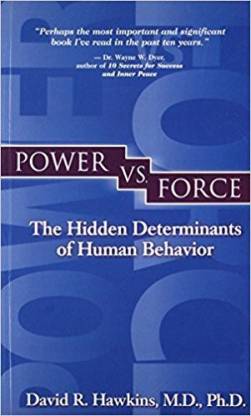Zero to One - Notes on Startups, or How to Build the Future by Peter Thiel
ZERO TO ONE - NOTES ON STARTUPS, OR HOW TO BUILD THE FUTURE BY PETER THIEL
Summary: Zero to one is an inside look at Peter Thiel’s philosophy and strategy for making your startup a success by looking at the lessons he learned from founding and selling PayPal, investing in Facebook and becoming a billionaire in the process. A chess master under age 21, a doctorate in law by age 25, and a company sale for $1.5 billion at age 35.
Zero to one will teach you the way he thinks, how he approaches business, and what you can do to build your startup’s own future and shape the future of the world in the process.
If you want to build a better future, you must believe in secrets.
The great secret of our time is that there are still uncharted frontiers to explore and new inventions to create. In Zero to One, legendary entrepreneur and investor Peter Thiel shows how we can find singular ways to create those new things.
Thiel begins with the contrarian premise that we live in an age of technological stagnation, even if we’re too distracted by shiny mobile devices to notice. Information technology has improved rapidly, but there is no reason why progress should be limited to computers or Silicon Valley. Progress can be achieved in any industry or area of business. It comes from the most important skill that every leader must master: learning to think for yourself.
Doing what someone else already knows how to do takes the world from 1 to n, adding more of something familiar. But when you do something new, you go from 0 to 1. The next Bill Gates will not build an operating system. The next Larry Page or Sergey Brin won’t make a search engine. Tomorrow’s champions will not win by competing ruthlessly in today’s marketplace. They will escape competition altogether, because their businesses will be unique.
Lessons
1. Create a monopoly rather than competing with other businesses. You create a monopoly when you solve a unique problem, when you do something other companies don’t do, or when you do something so well nobody else can offer a reasonably close replacement.
2. From 0 to 1 : Make the new instead of copying the old. Every moment in business happens only once. The next Bill Gates will not build an operating system. The next Larry Page or Sergey Brin won’t make a search engine. And the next Mark Zuckerberg won’t create a social network. If you are copying these guys, you aren’t learning from them.
3. The four sources of monopoly are : technology, networks, scale and brand. Peter Thiel says technology companies that create an enduring monopoly have a combination of these four characteristics.
4. Emphasise distribution/sales from the beginning, not as an afterthought. Sales, advertising and marketing are a core part of every successful business. Every startup needs to find a profitable channel of getting customers, whether they are running Facebook ads for low-cost products or training employees to sell high-priced products.
5. Dominate one small market first, then expand. He says startups should start small. Find a group of people who are not being served, then offer a unique solution to them. That’s how to create a monopoly and escape competition. Then after you’ve dominated the niche market, you can expand into progressively larger markets.
6. Knowing a secret is the cornerstone of great businesses. Thiel says great businesses are centred around secrets, often hidden in plain sight. For example, Airbnb saw what others didn’t—the hidden supply of property owners having extra rooms they were willing to rent out at a lower price than expensive hotel rooms.
7. Entrepreneurship requires definite future plans rather than diversification. An entrepreneur cannot “diversify” herself: you cannot run dozens of companies at the same time and then hope that one of them works out well. Less obvious but just as important, an individual cannot diversify his own life by keeping dozens of equally possible careers in ready reserve.
8. Successful venture funds have mostly failed investments but one extreme winner. Conventional investing wisdom says we should diversify, putting our money into a variety of companies, some of which will do well and some will do poorly. But Thiel says in venture capital the only rule is to focus on finding those rare companies with the potential of growing into an extreme winner. Most startups simply don’t have that kind of potential.
The core lesson is that the best and most disruptive companies go “from zero to one,” from non-existence to existence, from no solution to solution, from nothing expected to something expected. Most companies, though, go from 1 to 1.1, or 1.1 to 1.11, they don’t make a huge disruptive change. To have a lasting impact, you must find a zero and create a new paradigm.
Zero to One presents at once an optimistic view of the future of progress in America and a new way of thinking about innovation: it starts by learning to ask the questions that lead you to find value in unexpected places.





Comments
Post a Comment